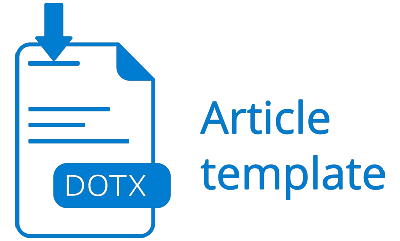Enhanching Employee Green Behavior Through Green Human Resources Management (HRM) and Environmental Knowledge Based on Tri Hita Karana
Abstract
One sector of the economy that significantly affects the environment is the hotel business. One of the key strategies used by hotels to mitigate adverse environmental consequences is Green HRM, which aims to lessen the negative effects that arise as part of green initiatives. Furthermore, Tri Hita Karana and environmental knowledge are closely related when it comes to putting sustainable methods into practice and maintaining the environment in a balanced way. The aims of this study is to know whether Green HRM at The Haven Bali Seminyak directly influences Environmental Knowledge and Employee Green Behavior, as well as whether it indirectly influences Employee Green Behavior through Environmental Knowledge based on Tri Hita Karana. In this research, 80 respondents, samples were obtained for data collection methods. This research uses a quantitative approach using the SmartPLS 3.0. From the results of the data analysis carried out, the results obtained are, Green HRM has positively and significantly impacts on Employee Green Behavior, Green HRM has positively and significantly effect on Environmental Knowledge, Environmental Knowledge has positively and significantly impacts on Employee Green. Behavior and Green HRM has positively and significantly impacts on Employee Green Behavior indirectly through Environmental Knowledge.
References
Aboramadan, M. (2022). The effect of green HRM on employee green behaviors in higher education: the mediating mechanism of green work engagement. International Journal of Organizational Analysis, 30(1), 7–23. https://doi.org/10.1108/IJOA-05-2020-2190
Ajzen, I. (1991). Theory of Planned Behavior. 33(1), 52–68. https://doi.org/10.47985/dcidj.475
Anindya, L., & Irhandayaningsih, A. (2021). Penerapan Komponen Human Capital dalam Teori Andrew Mayo (Studi Kasus: Perpustakaan Daerah Kabupaten Purbalingga). Anuva: Jurnal Kajian Budaya, Perpustakaan, Dan Informasi, 5(2), 237–250. https://doi.org/10.14710/anuva.5.2.237-250
Ayu, I., & Sumawidari, K. (2021). Tri Hita Karana Implementation in Accommodation Management ( The Case of Traditional Balinese Homestays in Ubud ). 2(3).
Ercantan, O., & Eyupoglu, S. (2022). How Do Green Human Resource Management Practices Encourage Employees to Engage in Green Behavior? Perceptions of University Students as Prospective Employees. Sustainability (Switzerland), 14(3). https://doi.org/10.3390/su14031718
Fawehinmi, O., Yusliza, M. Y., Mohamad, Z., Noor Faezah, J., & Muhammad, Z. (2020). Assessing the green behaviour of academics: The role of green human resource management and environmental knowledge. International Journal of Manpower, 41(7), 879–900. https://doi.org/10.1108/IJM-07-2019-0347
Fikri Imaduddin, M., & Suwarsi, S. (2023). Pengaruh Green Human Resource Management terhadap Kinerja Karyawan. Bandung Conference Series: Business and Management, 3(1), 455–460. https://doi.org/10.29313/bcsbm.v3i1.7123
Hill, R. J., Fishbein, M., & Ajzen, I. (1975). Belief, Attitude, Intention and Behavior: An Introduction to Theory and Research. Contemporary Sociology, 6(2), 244. https://doi.org/10.2307/2065853
Irmawati, B., & Trihardjanti, C. (2020). Implementasi Green Human Resources Management Pada Perusahaan Di Semarang. Laporan Penelitian, Pusat Peng, v+ 27.
Karmoker, K., Kona, F. A., Oyshi, A. H., & Yasmin, K. S. (2021). Effects of Green Human Resource Management on Employee Green Behavior: Moderating Role of Employee Environmental Knowledge. International Journal of Sustainable Development & World Policy, 10(2), 64–80. https://doi.org/10.18488/journal.26.2021.102.64.80
Kaufmann, H. R., Panni, M. F. A. K., & Orphanidou, Y. (2012). Factors Affecting Consumers ’ Green Purchasing Behavior : Amifiteratru Economic, XIV(31), 50–69.
Khitam, H. (2018). The Environmental Perception in Indonesia: Preliminary Findings. 129(Icsps 2017), 98–101. https://doi.org/10.2991/icsps-17.2018.21
Kurniawan Saputra, K. A., Sujana, E., & Tama, G. M. (2018). Perspektif Budaya Lokal Tri Hita Karana dalam Pencegahan Kecurangan pada Pengelolaan Dana Desa. Jurnal Akuntansi Publik, 1(1), 28–41. https://doi.org/10.32554/jap.v1.i1.p28-41
Lestari, F. K., Windia, W., & Astiti, N. W. S. (2015). Penerapan Tri Hita Karana untuk Keberlanjutan Sistem Subak yang Menjadi Warisan Budaya Dunia: Kasus Subak Wangaya Betan, Kecamatan Penebel, Kabupaten Tabanan. Jurnal Manajemen Agribisnis, 3.
Masri, H. A., & Jaaron, A. A. M. (2017). Assessing green human resources management practices in Palestinian manufacturing context: An empirical study. Journal of Cleaner Production, 143, 474–489. https://doi.org/10.1016/j.jclepro.2016.12.087
Ones, D. S. (2021). Employee Green Behaviors. January 2012.
Pramono, J. (2016). HOTEL BERBINTANG DI BALI. 10(1), 64–73.
Purnama, N. D. &, & Nawangsari, L. C. (2019). Pengaruh Green Human Resource Management Terhadap Sustainability Business : Pendekatan Konsep. Pengaruh Green Human Resource Management Terhadap Sustainability Business, 32–39.
Renwick, D. W. S., Redman, T., & Maguire, S. (2013). Green Human Resource Management: A Review and Research Agenda*. International Journal of Management Reviews, 15(1), 1–14. https://doi.org/10.1111/j.1468-2370.2011.00328.x
Saeed, B. Bin, Afsar, B., Hafeez, S., Khan, I., Tahir, M., & Afridi, M. A. (2019). Promoting employee’s proenvironmental behavior through green human resource management practices. Corporate Social Responsibility and Environmental Management, 26(2), 424–438. https://doi.org/10.1002/csr.1694
Safari, A., Salehzadeh, R., Panahi, R., & Abolghasemian, S. (2018). Multiple pathways linking environmental knowledge and awareness to employees ’ green behavior. https://doi.org/10.1108/CG-08-2016-0168
Scholar, B., & Burchett, J. H. (2015). Environmental Literacy and its Implications for Effective Public Policy Formation. University of Tennessee, KnoxvilleTrace: Tennessee Research and CreativeExchangeBaker. http://trace.tennessee.edu/utk_bakerschol/27
Uslu, F., Keles, A., Aytekin, A., Yayla, O., Keles, H., Ergun, G. S., & Tarinc, A. (2023). Effect of Green Human Resource Management on Green Psychological Climate and Environmental Green Behavior of Hotel Employees : The Moderator Roles of Environmental Sensitivity and Altruism.
Veerasamy, U., Joseph, M. S., & Parayitam, S. (2023). Green Human Resource Management and Employee Green Behaviour: Participation and Involvement, and Training and Development as Moderators. South Asian Journal of Human Resources Management. https://doi.org/10.1177/23220937221144361
Wang, L., Wong, P. P. W., & Narayanan Alagas, E. (2020). Antecedents of green purchase behaviour: an examination of altruism and environmental knowledge. International Journal of Culture, Tourism, and Hospitality Research, 14(1), 63–82. https://doi.org/10.1108/IJCTHR-02-2019-0034
Zhang, B., Yang, L., Cheng, X., & Chen, F. (2021). How Does Employee Green Behavior Impact Employee Well-Being ? An Empirical Analysis.
Zhang, W., Xu, R., Jiang, Y., & Zhang, W. (2021). How environmental knowledge management promotes employee green behavior: An empirical study. International Journal of Environmental Research and Public Health, 18(9). https://doi.org/10.3390/ijerph18094738
 Abstract viewed = 98 times
Abstract viewed = 98 times
 PDF downloaded = 136 times
PDF downloaded = 136 times







